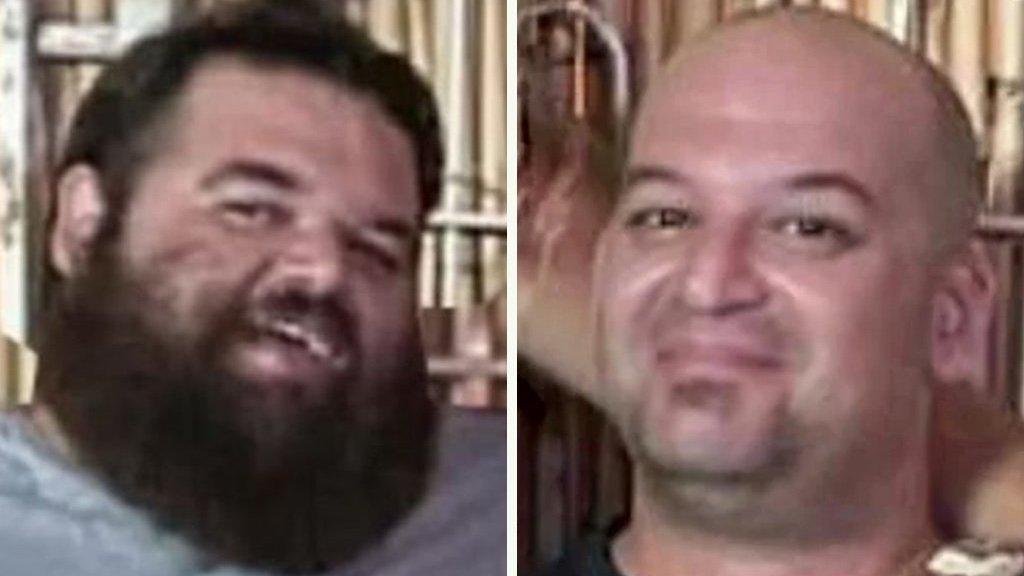Alex Danzig: Fears grow for much-loved historian kidnapped by Hamas
- Published
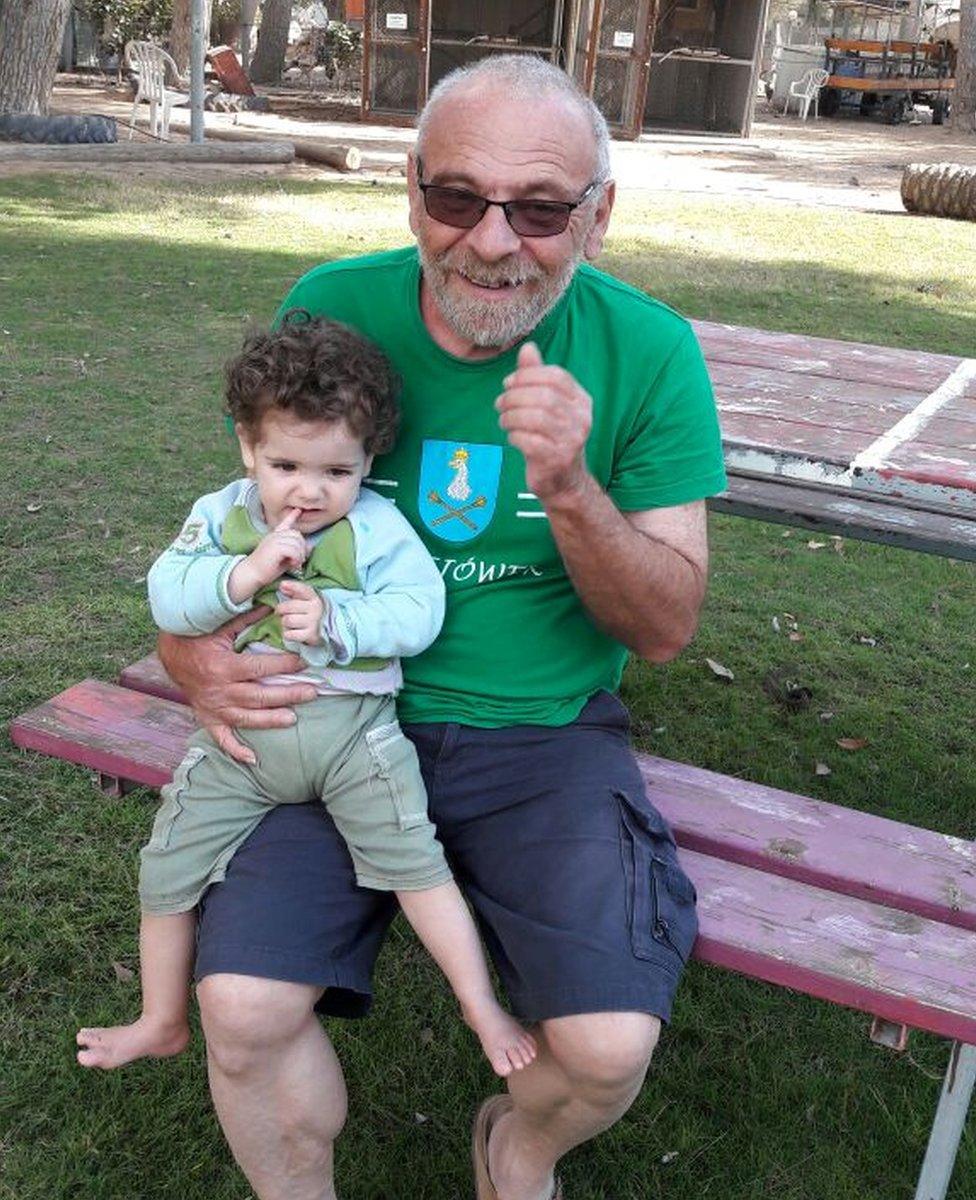
Alex Danzig with one of his granddaughters, Aviv, at the time aged two

The killing of at least 1,400 people in Israel by Palestinian Hamas militants from Gaza and the taking of more than 100 hostages have reverberated around the world, notably in central and eastern Europe, with its strong Jewish connections and memories of the Holocaust.
There, the taking of one man has caused particular distress and sorrow.
Alex Danzig, a 75-year-old scholar and historian of the Holocaust, has spent the last 30 years working for Yad Vashem, Israel's Holocaust remembrance centre, educating Jews and Poles about what happened in the later years of World War Two.
But he lives in Nir Oz, a kibbutz in southern Israel that is close to Gaza, and hasn't been seen or heard from by his family since 7 October, the day the attackers came.
There's a bitter irony here. Though Alex was born in Poland after the war - in 1948, the same year as the creation of the State of Israel - his older sister Edith is a Holocaust survivor.
Born in 1941 under German occupation in what is now western Ukraine, she was found a place of refuge by her parents with a Polish mother and daughter, Maria and Halina Assanowicz, who saved her from the Nazis.
This humanitarian act also allowed Edith's parents to have more freedom of movement, despite the occupation and the persecution of Jews, and they later testified that they themselves owed their lives to the Assanowiczes. The pair were recognised by Yad Vashem as Righteous Among the Nations in 1982, the highest honour Israel can bestow on non-Jewish saviours of Jews in the Holocaust.
So it would be no exaggeration to say that Alex Danzig also owed his existence to these people.
Alex's early life was unremarkable. He spent his first nine years in Poland, and after his parents emigrated to Israel in 1957 he spent time in the military, fighting in several wars, joined a left-wing youth organisation, obtained a degree in history and started a family on the kibbutz.
It was his return to Poland on a trip in 1986, and a visit to the site of Auschwitz - a death camp when the country was occupied by the Nazis - which fuelled his interest in the Holocaust, and in particular the complexity of Polish-Jewish relations. He spent the next few decades leading tours to the death camps, and educating Israeli and Polish students.
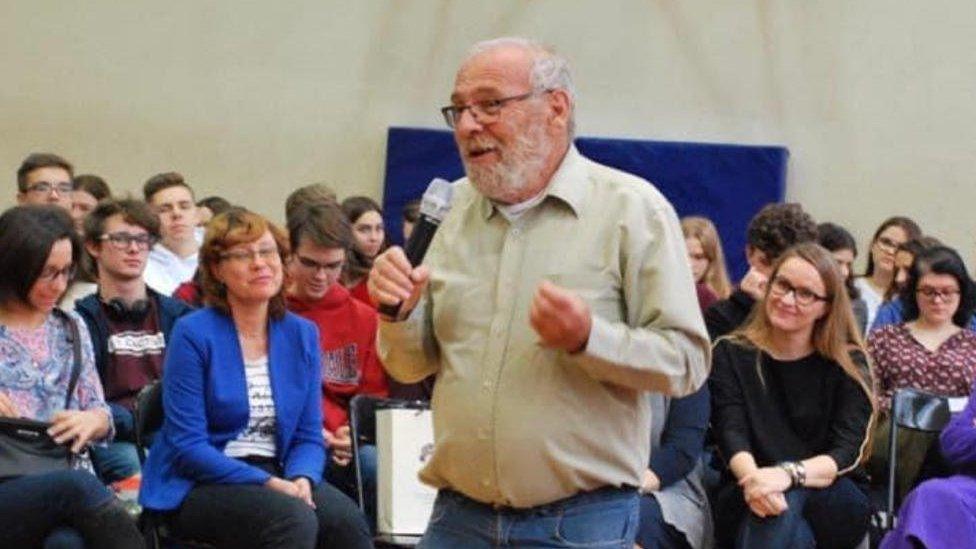
Alex Danzig has educated thousands of people about Polish-Jewish relations and the Holocaust
Speaking to the BBC, his close friend and former colleague Orit Margilot - who worked with him on the Polish desk at Yad Vashem - describes him as "the most knowledgeable person I know".
She paints a picture of a great communicator who knows how to speak to young people and can break down barriers - for instance with references to people's favourite football teams.
She says his impact has been enormous.
"He knows how to open hearts to this topic [Polish-Jewish relations]. It's really not easy. It worked so well [in Poland] that they all became his friends."
"He has thousands of students who adore and love him," his son Mati told the BBC. "He is an exceptional teacher - every time I've been in a lecture of him I was fascinated."
But aside from his intellectual work, he also loves working on the land and alternates between lecturing and his home in the kibbutz. It was there that he disappeared when the Hamas attackers came.
'Luck from God'
Mati, who also lives at Nir Oz but survived the attack with his family, is currently in the relative safety of the Red Sea resort of Eilat with other survivors. He described the terrible events of that day.
He said they received an alert at 06:30 (03:30 GMT) which they thought was a rocket attack, not uncommon in that part of Israel.
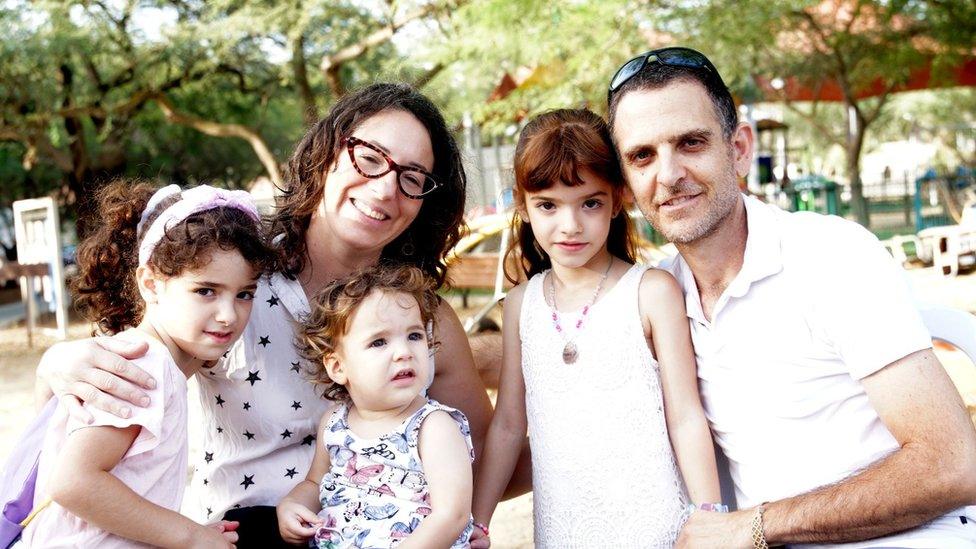
Mati Danzig pictured with his wife Shiri and daughters Aviv, 8 (L), Alma, 2 (centre) and Naama, 7 (R)
It was his father who first told him to check messages on a kibbutz chat, where people were messaging about what was really going on - that gunmen had entered the area.
At first Mati thought the attackers were just ransacking people's homes but soon messages started appearing that people had been shot, and it became clear that they were killing or kidnapping whoever they could.
Mati and his family spent eight hours fearing that they would be next.
"I look at my three daughters and I say that this is the last time that I will see them and it's a pity that these animals will take the lives of innocent children," he said.
But the attackers never came for them.
"We were one of very few houses, maybe three or four houses, that they didn't get in, some kind of luck from God."

More on Israel-Gaza war
Follow live: Latest updates
History behind the story: The Israel-Palestinian conflict
Hamas attack: Family seeks answers after live-stream horror
From Gaza: BBC reporter flees Israel bomb warning

Mati's mother, estranged from Alex but living in Nir Oz, also survived, he says, by bravely holding her door against the attackers. Two of Mati's siblings and their children also somehow escaped the carnage.
Alex Danzig was not so lucky.
"My brother Yuval spoke to him about 08:30, and this was the last time we made connection with him," Mati says.
"We know for sure he was kidnapped, there was no doubt about it - along with 80 others from the Kibbutz - there was no evidence of them anywhere."
He says everyone fears for Alex's safety. He has not been seen in any of the photos or videos released by Hamas since the kidnappings.
The historian had a severe heart attack and surgery several years ago and needs medication, which he does not have with him.
"Every minute that goes by is dangerous for him," Mati says.
'There was no ego'
His disappearance has triggered a campaign for his release, both in Israel and in Poland.
The #StandwithAlex campaign, external is trying to put pressure on the Polish government to secure his release.
"Help us help him. We want him back," says a statement on the campaign's Facebook page.
"We want him returned safety, and all those innocents cruelly taken by Hamas to come home, safely."
Ms Margilot spoke of her "real, truthful friendship" with Alex, a man who is a year older than her mother.
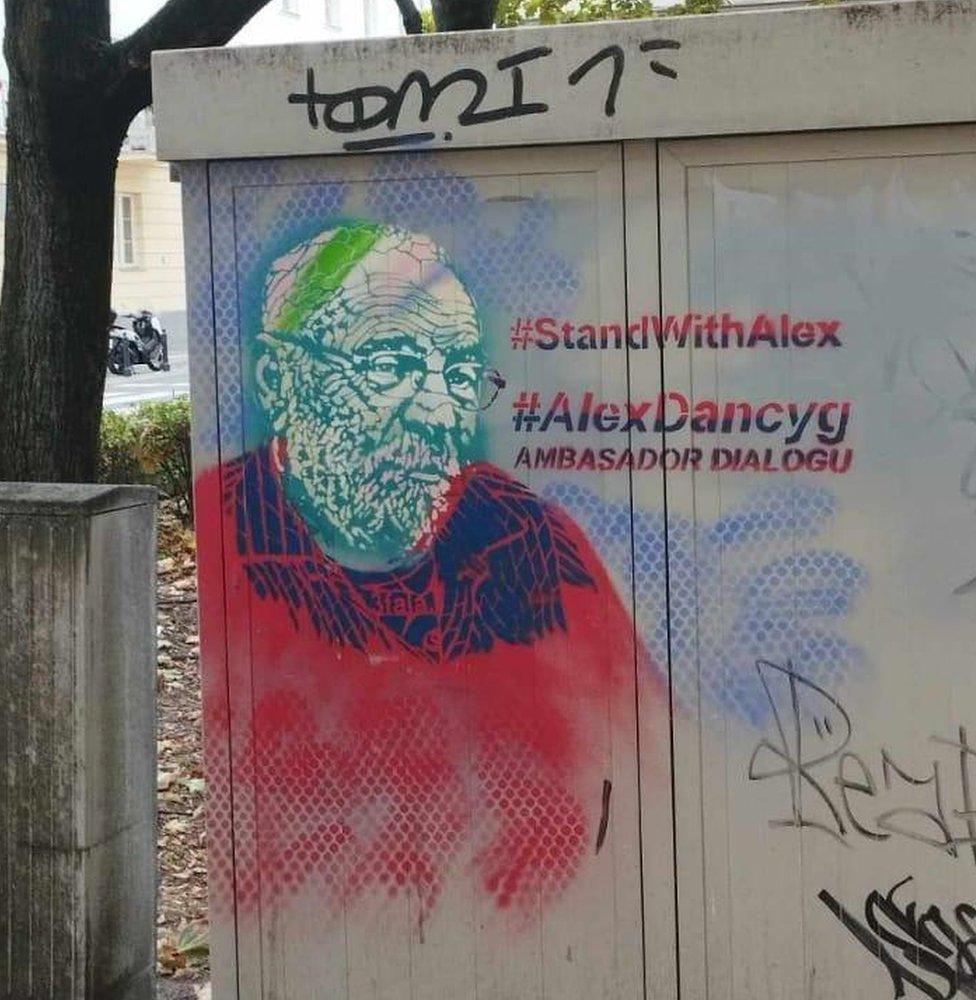
The historian's disappearance has led to a campaign for his release in Poland

"There was never any ego, in a way we completed each other," she said, adding that he was always considerate towards her as an observant Jew, for instance making sure she had kosher food on trips abroad.
Ms Margilot is currently making efforts to obtain his birth certificate from archives in Warsaw, in order to get written confirmation of his Polish citizenship.
This was revoked in 1957 because of a technicality when he emigrated, though recently he has received awards from the Polish government only given to Polish citizens.
Ms Margilot believes a citizenship document might be the key to his release.
"Sometimes if you have foreign citizenship it helps with Hamas," she says.
Mati says he and his father have always been "very close", even though for many years they were physically far apart.
Born on the kibbutz, Mati moved back with his family when his oldest daughter was three years old.
Since then they have seen Alex at least three times a week.
His son said that the day before the attack they had visited him for a family dinner, and he was very happy to see them.
"It was very lovely, the atmosphere was very nice," he said.
"And then the sky fell."
Related topics
- Published17 October 2023
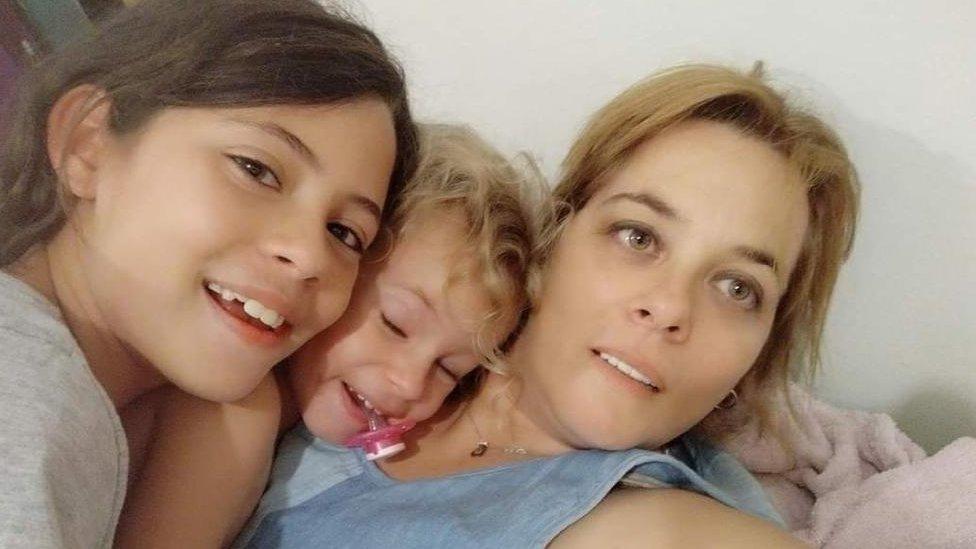
- Published27 February
